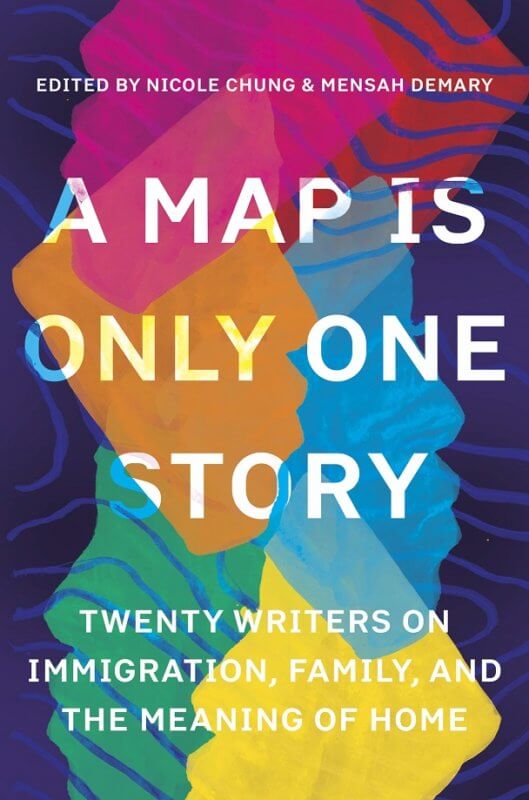26 Feb / A Map Is Only One Story: Twenty Writers on Immigration, Family, and the Meaning of Home edited by Nicole Chung and Mensah Demary [in Shelf Awareness]

 The title originates in poet Jamila Osman’s essay, “A Map of Lost Things”: “A map is only one story,” writes the Canadian-born daughter of Somali immigrants who now lives in Portland, Ore. “It is not the most important story. The most important story is the one a people tell about themselves.” Osman is one of 20 writers – some already award-winning, others just beginning their careers – whose intimate essays share distinctive, diasporic stories traversing borders and cultures. Curated by Catapult magazine editor-in-chief and memoirist Nicole Chung (All You Can Ever Know) and Catapult founding editor Mensah Demary, A Map Is Only One Story marks the magazine’s debut anthology.
The title originates in poet Jamila Osman’s essay, “A Map of Lost Things”: “A map is only one story,” writes the Canadian-born daughter of Somali immigrants who now lives in Portland, Ore. “It is not the most important story. The most important story is the one a people tell about themselves.” Osman is one of 20 writers – some already award-winning, others just beginning their careers – whose intimate essays share distinctive, diasporic stories traversing borders and cultures. Curated by Catapult magazine editor-in-chief and memoirist Nicole Chung (All You Can Ever Know) and Catapult founding editor Mensah Demary, A Map Is Only One Story marks the magazine’s debut anthology.
Born in Malaysia, Los Angeles artist Shing Yin Khor’s “Say It with Noodles” stands out for its graphic format, in which they learn from their grandmother to speak the language of love through food. Toronto BASHY magazine publisher Sharine Taylor also channels her grandmother’s language in “My Grandmother’s Patois and Other Keys to Survival,” revealing the power and comfort of private and public speech. Indian Australian lawyer and activist Kamna Muddagouni learns “How to Stop Saying Sorry When Things Aren’t Your Fault.” As a Finnish transplant to Florida, poet Niina Pollari discovers an exceptional “normal” in “Dead-Guy Shirts and Motel Kids.” Escaping Lagos’s “have-beens and once-weres,” MFA student/writing teacher Kenechi Uzor (the lone male voice) escapes “one hell for another” in Utah in “This Hell Not Mine.”
Perhaps unsurprising with collections, quality isn’t quite consistent here. As contributors “reveal and explore the human side of immigration,” the compilation stands out for the voices that shout loudest, linger longest – and exhort readers to confront their own journeys toward that elusive destination called home.
Discover: Twenty writers from Catapult magazine cross borders and straddle cultures as they provocatively, vulnerably examine “immigration, family, and the meaning of home.”
Review: “Social Science,” Shelf Awareness, February 25, 2020
Readers: Adult
Published: 2020
